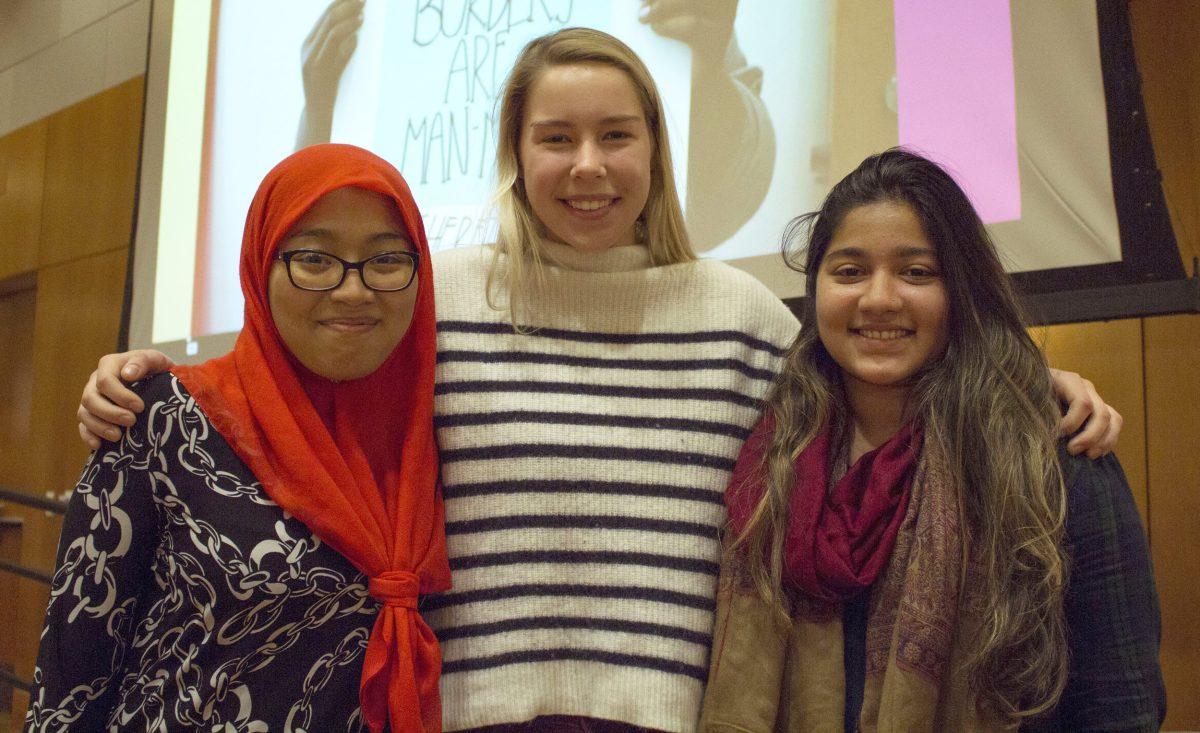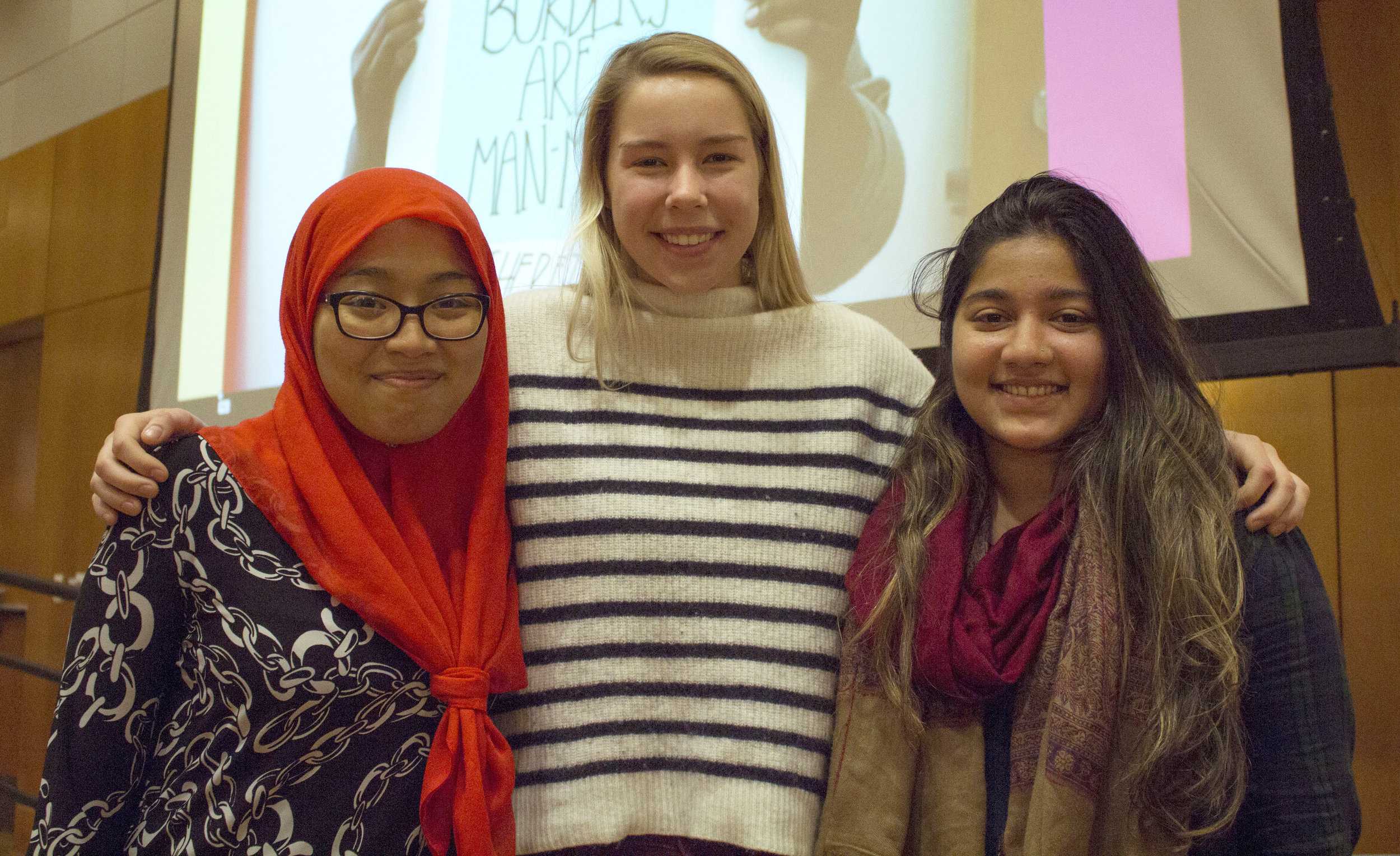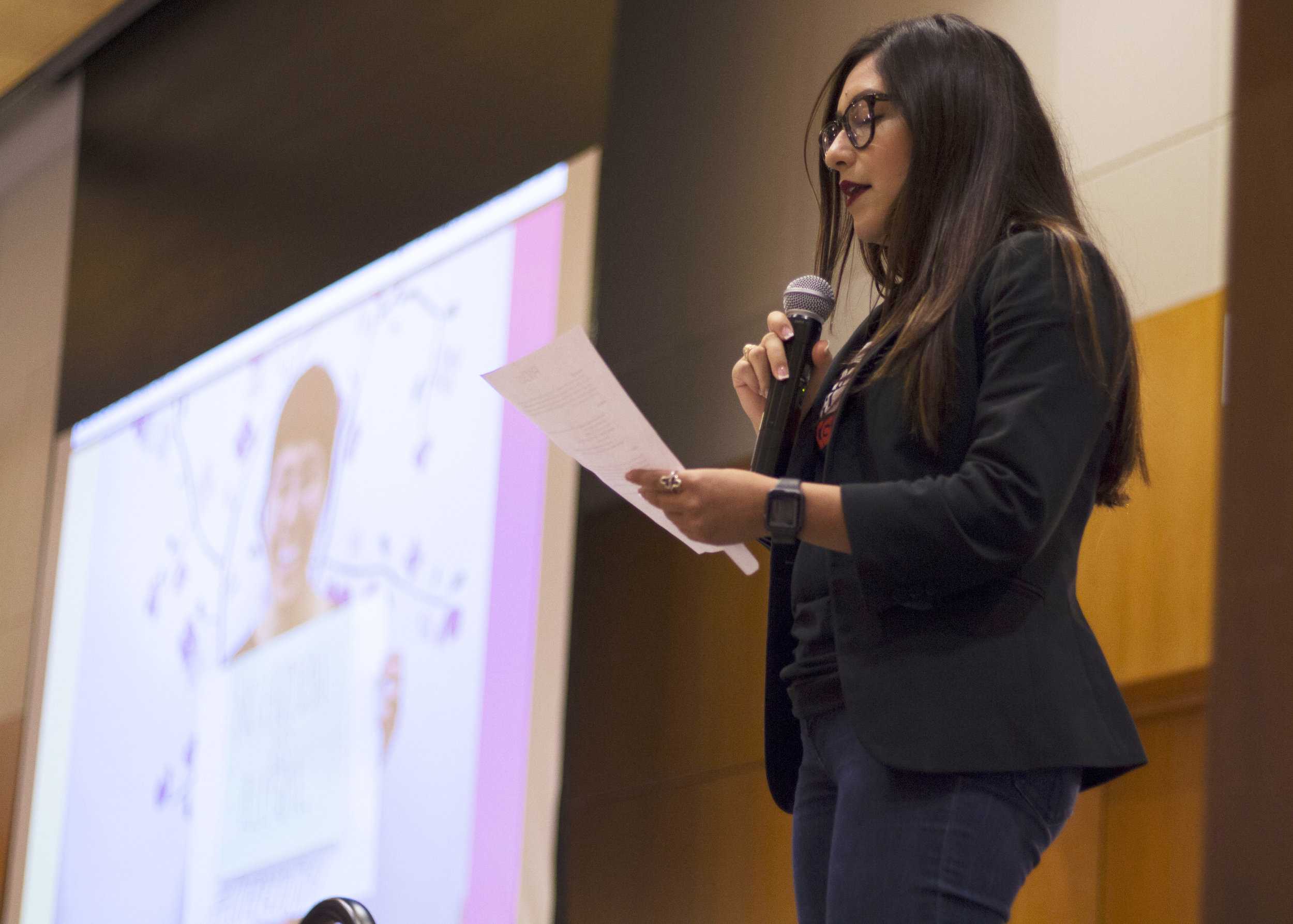The month of October brought thousands of migrants through the corridors of Austin. Bringing life and color, the monarch butterflies served as a reminder that migration is both natural and beautiful. This past week, several organization on campus sought to share the same message.
By Ashley Nava
University Leadership Initiative (ULI)’s Undocu Longhorn Week and Students for Equity and Diversity’s Faces of Immigration event gave students at the University of Texas at Austin a chance to share their testimonies and put a face to topics covered on the news. “We wanted to highlight the contributions of undocumented students on campus and provide insight to what they have to endure in college and their communities,” says Samuel Cervantes, government and communications studies junior and ULI member.
To kick off Undocu Longhorns week, ULI hosted a film screening of “Indivisible,” an emotional documentary that tells the story of three “Dreamers” and their journey to reuniting with their deported family members. Tears and sniffles filled the room as the images on the screen hit home for some students.
It has been seven years since government sophomore and ULI member Vanessa Rodriguez last saw her sister, who returned to Mexico since she did not see a future for herself here given her documentation status. “In the grand scope of things we are each impacted in different ways,” Rodriguez says to the audience. “You all are f––ing strong people and our fight doesn’t end here.”
The film screening coincided with the Trump administration’s termination of the Temporary Protected Status (TPS) for some Central American immigrants. This is exactly two months after the rescission of Deferred Action for Childhood Arrivals (DACA). Now, more than 2,500 Nicaraguans who have lived in the U.S. for up to 20 years and have U.S. born children will have to leave the country within 14 months.
As programs that protect immigrants begin to phase out, many will start to lose their work authorization. On Tuesday, ULI held a fundraiser selling corn in a cup and aguas frescas to help create a rainy day fund and scholarships for undocumented students. “For five years people have worked and built their lives around DACA,” Cervantes says. “Ending the program in less than six months won’t give people enough time to completely change their lives. If Congress doesn’t do anything by March 15, we are going to start to feeling the repercussions.”
Middle Eastern studies senior Markfirah Krueng, neuroscience sophomore Karoleena Krypel and government senior Tehreem Shahab spoke about their immigrant experiences at the “Faces of Immigration” event.
Although all DACA recipients are immigrants, not all immigrants have DACA. On Thursday evening, Students for Equity and Diversity hosted “Faces of Immigration,” an event intended to shed light on the diversity of immigrant narratives. Coincidently, earlier that day there were nationwide walkouts organized by United We Dream for a clean DREAM act that includes a clear path to citizenship without tradeoffs.
During the event, panelists Middle Eastern studies senior Markfirah Krueng, neuroscience sophomore Karoleena Krypel and government senior Tehreem Shahab spoke about their experiences as immigrants.
Leaving Pakistan at 15 years old, Shahab was granted citizenship after her mother was naturalized with the help of Shahab’s grandfather, an employee at the United States embassy in Pakistan. This was the first time she spoke of her experience to a large crowd. “I liked the fact that people were coming forward and talking about their experiences,” Shahab says. “Hearing Zaira’s experience really opened my eyes to how broken the immigration system really is. I don’t think people realize how much privilege one has if they are a citizen.”
Zaira Garcia works for FWD.us, a bipartisan non-profit organization that works for immigration and criminal justtice reform.
When she was 16 years old, UT alumna and keynote speaker Zaira Garcia began to seek immigration lawyers to help her parents gain citizenship but to no avail. Her dreams of becoming an immigration lawyer changed once her cousin, an electrical and mechanical engineer who was applying to enter the states legally, was killed due to organized crime in Mexico.
Now as the Texas chapter associate for FWD.us, a bipartisan nonprofit that fights for a comprehensive immigration reform, Garcia shares her story and works to mobilize voters to demand more from Congress. “Our immigration system is restrictive and outdated,” Garcia says. “It [immigration] is not just about coming here for a better life, but a matter of survival. At that moment I couldn’t keep pretending that I could work a system that didn’t work.”
Garcia ended the night with a call to action. “If nothing gets done by December, the way the system works, each day an estimated 140 DACA recipients could lose their right to work starting January 1st,” Garcia says. “We need to utilize our voice as voters and consumers and demand for change now.”













































